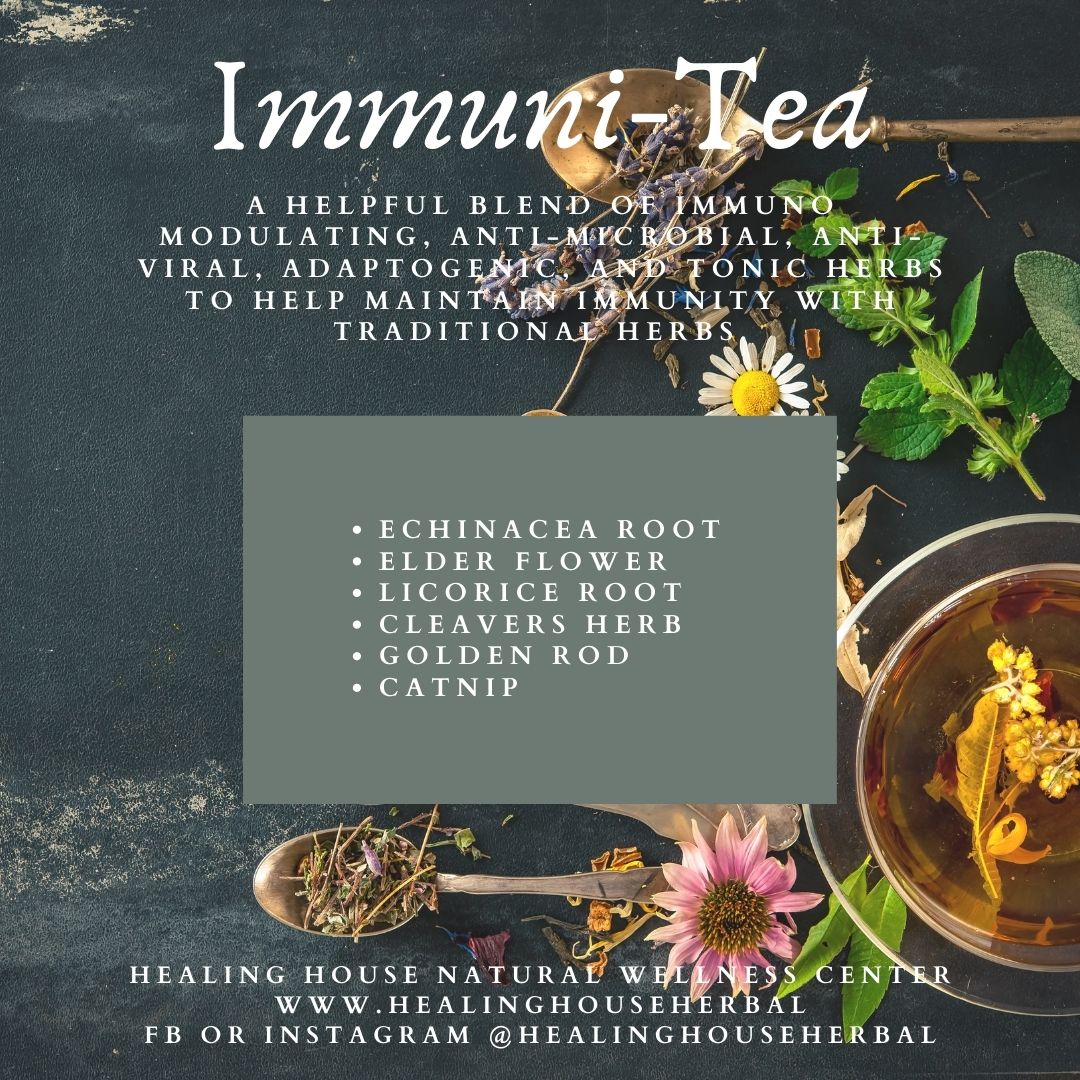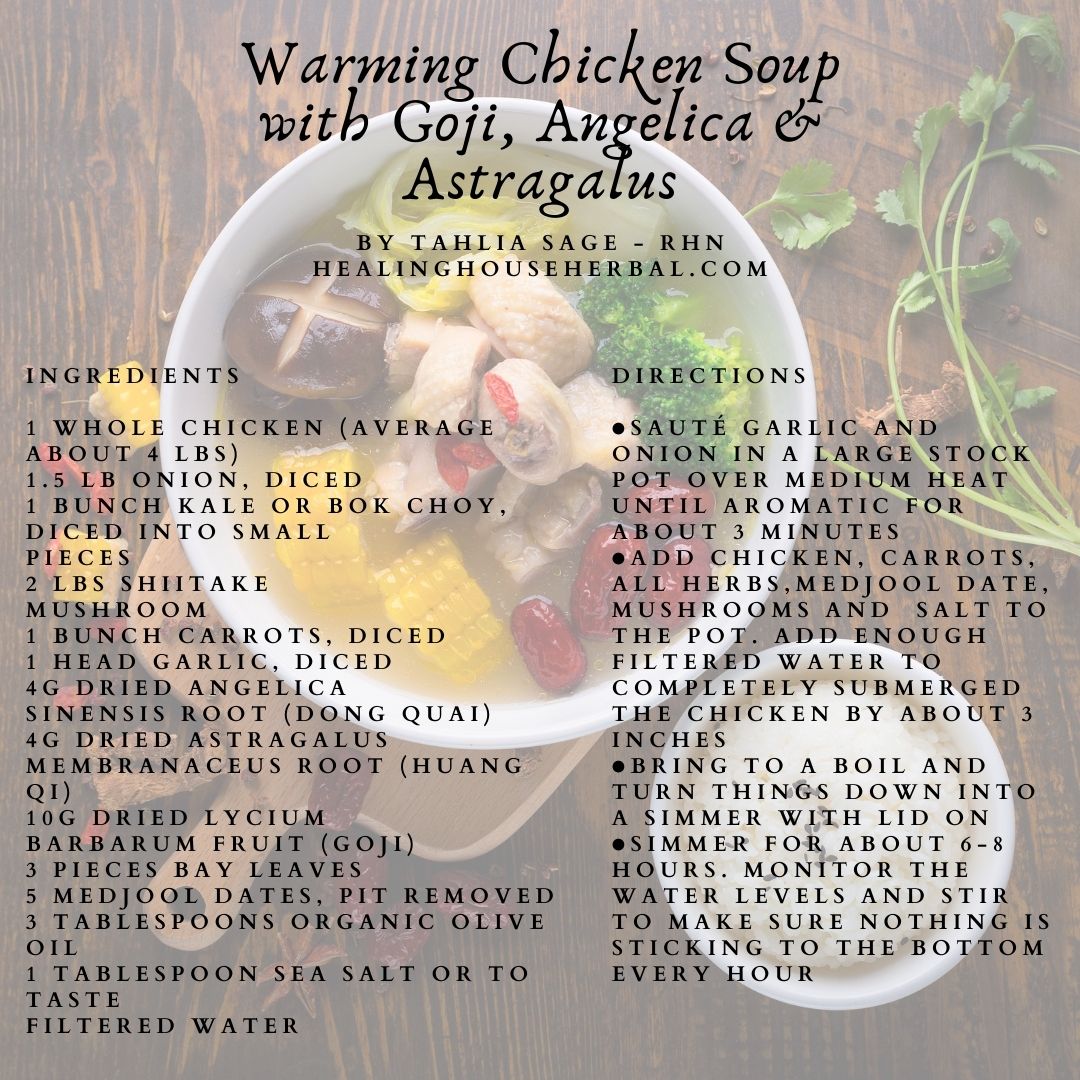|
As temperature cools and daylight shortens, life’s pace slows down: plants grow slower and some animals hibernate to conserve energy for the spring to come. Your health also goes through seasonal shifts that require adjustments to your nutrition and lifestyle to strengthen your foundational health. Let’s take a look at three practices that you can do to support your immune and digestive health during this time of the year. Slightly Cooked Vegetables and Herbal Tea If you notice you have been skipping salads and icy smoothies as the weather cools, adding vegetables to soups can be a great way to get more nutrients into your digest. Digestion and absorption requires optimal temperature and pH to occur. Extreme cold temperatures tend to cause the restriction of blood vessels causing poor circulation, sluggish digestion and in some cases, intestinal spasms as the body tries to warm things up to its preferred temperature range. Moderate amounts of fresh produce are completely okay and beneficial if your body feels good consuming it. Personally, I can’t resist the crunch of a beautiful, locally grown apple. However, if you notice a pattern of loose stool, bloating and cramps you might want to swap the icy cold water or soda to a caffeine free herbal tea, and swap the loaded raw salad with a slightly steamed or stir-fried vegetable. The optimal ratio of raw vs. cooked food varies based on the individual’s constitution, their current state of digestive health, and the climate. Immuni-Tea from Healing House is a delicious herbal blend that contains antimicrobial and immunity supportive herbs to support your respiratory system health and your overall immunity. Healthy Fat and Protein
Cold, brisk air can make the skin feel dry and sensitive. Amping up healthy fat intake is a good way to provide crucial nutrients to support and nourish your skin. Another benefit of having the healthy fats in your diet is because some quality fats are carriers of immune protective antioxidants such as vitamin A, D, and E. Gamma Linolenic Acid Unlike the type of omega 6 people acquired from processed foods such as deep fried chips and baked goods made with vegetable oils, GLA provides emollient effects for hair and skin, in addition to also providing support for hormone health. You can get GLA from spirulina, chlorella, hemp seeds and/or its oil, evening primrose oil, borage oil. It’s important to consider adding the following foods into your diet to keep a balanced ratio of omega 3 to 6 in your body. Alpha Linolenic Acid and Fish/Algae Oils Omega 3 provides anti-inflammatory properties to the body, especially beneficial to joint, skin, mood and hormone health. You can get ALA from flax seeds, hemp seeds, walnut, chia seeds, perilla seeds. Fish and algae oil provides pre-activated forms of omega 3 making it readily available for the body. A good quality cod liver oil can also provide the body with vitamin A and D. Quality Protein Winter is a good time to deepen your connection with your body and improve your vitality by increasing the nutrient density of your diet. Bone broth that takes hours and hours to simmer is a great way to extract readily available collagen, glucosamine, calcium, magnesium, zinc and potassium. Take advantage of the slow cooking process to toss in some mushrooms, like maitake, shiitake, wood ear and lions mane to enhance the flavour and texture of the soup such as. These mushrooms also provide immune modulating beta-glucans to support your health. You can also take your soup to the next level by adding some blood tonifying herbs such as burdock, goji, astragalus and dan sheng. Digest Better With Bitters If your digestive system feels sluggish from the winter season, you can naturally stimulate your digestion with bitter foods such as kale, endives, rapini, broccoli, mustard greens and arugula. Bitter flavour stimulates bile production which naturally helps to promote intestinal peristalsis and kills off bad bacteria in the gut. Disclaimer Please consult a qualified practitioner before using herbal medicine. This article is for information purposes only. About the Author Tahlia Sage (Certified Nutritional Practitioner, Bsc Food, Nutrition & Health) is a partner at Healing House Natural Wellness (healinghouseherbal.com), the founder of Tahlia Sage Wellness (tahliasagewellness.com) and she is also an instructor at the Institute of Holistic Nutrition. Her coaching practice helps clients achieve their wellness goals by embracing functional foods and healthy lifestyle changes. Tahlia’s own health challenges and weight issues prompted her to pursue an education in nutritional science and holistic nutrition. Tahlia empowers her clients to regain balance with easy, concrete steps. Connect here with Tahlia for a free 15 min discovery session.
0 Comments
Leave a Reply. |
Petra Sovcov is not a Medical Doctor (MD) nor a Naturopath (ND), she is a Clinical Herbal Therapist (CHT) and holds a Doctorate in Natural Medicine (DNM). The suggestions or recommendations made on this site are not meant to be a substitute for advice from your MD, or as a substitute for any prescriptions you may be taking. Suggestions followed will be the responsibility of the reader, and are stated with the intention of interest and education only. If you have a health issue, please see your primary care physician (MD) first and foremost. Categories
All
Archives
July 2024
|




 RSS Feed
RSS Feed